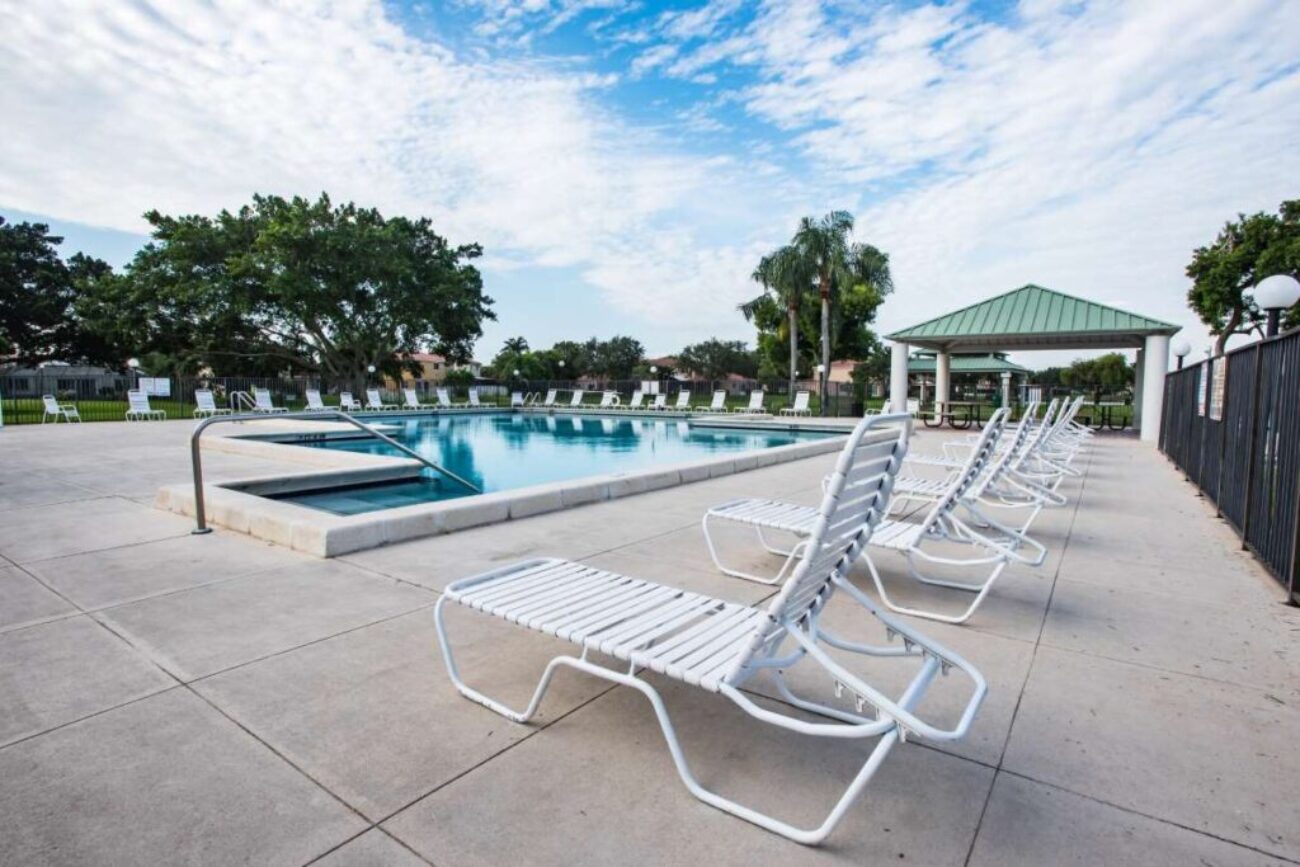When Should You Accept a Low Offer on Your Pool Route?
Navigating the pool route business can be challenging, especially when it comes to evaluating offers. A low offer may seem disheartening, but there are circumstances under which accepting it can be a strategic move. This blog post will explore the nuances of deciding when to accept a low offer on your pool route, covering market conditions, financial implications, and practical considerations. Whether you’re an experienced pool service owner or a newcomer to the market, understanding the factors at play can help you make informed decisions that support your long-term success.
Understanding Market Dynamics
The pool maintenance industry is influenced by a variety of factors, including seasonal demand, economic conditions, and competitive forces. Understanding these dynamics is crucial when evaluating offers for your pool route. For instance, if you are considering a low offer during the off-peak season, it may be prudent to assess whether you expect demand to rebound and if holding out for a better offer could be beneficial. Conversely, if the market is experiencing a downturn, accepting a low offer might be a wise choice to secure some return on your investment.
Additionally, market saturation can play a significant role in determining the value of your pool route. If there are many similar routes available for sale, your offer may reflect the competitive landscape. It’s essential to keep a close eye on trends in the pool service business and adjust your expectations accordingly. For example, if you’re located in a region with an influx of new pool service providers, it may be challenging to maintain your route’s value. In such cases, accepting a lower offer quickly could prevent further depreciation.
Evaluating Your Financial Situation
Your financial position is a critical factor when considering a low offer. If you’re looking to sell quickly to free up cash or reduce financial stress, accepting a low offer might be your best option. It’s important to analyze your current financial obligations, such as loans or operational costs. If accepting the offer can help alleviate financial strain, it may warrant your consideration.
Moreover, the opportunity cost of holding out for a higher offer should not be overlooked. If the low offer provides you with immediate cash, it could be better than waiting for an uncertain future offer that may never materialize. This is particularly relevant for pool service owners who are looking to expand or invest in new opportunities. By accepting the low offer, you can reinvest the funds into more profitable ventures, thereby enhancing your overall business growth.
Assessing the Offer Against Your Business Goals
When faced with a low offer, it’s important to reflect on your long-term business goals. If your goal is to exit the pool service industry quickly, then a low offer may align perfectly with your objectives. However, if you plan to grow your business further or maintain your current operation, you may want to reconsider accepting a low offer. It’s crucial to align any sale with your overall business strategy to ensure that your decision enhances your future prospects.
Consider also the potential for future gains from retaining your route. If you have invested time and resources into building an established customer base and improving service quality, it may be worth holding out for a better offer. In these situations, understanding the lifetime value of your customers and the potential for recurring revenue can guide your decision. If your route is generating consistent profits, it could be more advantageous to keep it rather than accepting a low offer that doesn’t reflect its true worth.
Strategic Timing for Accepting Low Offers
Timing can be everything in the pool maintenance industry. If you find yourself in a position where the market is stagnant or declining, waiting for a higher offer may not be feasible. Cash flow is often king, and if a low offer can provide immediate relief or meet urgent financial needs, it may be wise to accept it.
Moreover, the timing of your decision can affect your future opportunities. Pool routes in Florida and Texas, for instance, can be subject to seasonal fluctuations. If you are aware that the coming months may see a drop in demand, accepting a low offer now might prevent more significant losses later. Keeping an eye on local market trends, seasonal impacts, and the performance of competing routes can provide context and clarity in your decision-making process.
Understanding Buyer Motivations
When receiving a low offer, it’s essential to dig deeper into the buyer’s motivations. Are they looking to enter the market quickly? Do they have plans to expand? Understanding their rationale can provide insights into whether there is room for negotiation or if the offer is genuinely reflective of what the market supports. Buyers who are genuinely interested in growing the pool service business may be willing to negotiate further, which could lead to a better deal.
Additionally, exploring the buyer’s experience in the industry can be beneficial. A buyer who understands the dynamics of pool service and has a plan for growth may appreciate the value of your route more than a novice. Engaging in a conversation about your business’s potential can sometimes lead to a revised offer, turning an initially low offer into a more favorable deal.
Consulting with a Pool Business Broker
One effective way to navigate the complexities of evaluating offers is to consult with a pool business broker. Brokers can provide valuable insights into market conditions and assist you in understanding the true value of your pool route. By leveraging their expertise, you can make more informed decisions regarding whether to accept a low offer or hold out for better terms.
Brokers can also aid in negotiating offers on your behalf, ensuring that you are not undervaluing your business. Their knowledge of the local market, especially in regions like Florida and Texas, can prove invaluable. They can help highlight the strengths of your pool route and potentially transform a low offer into a more acceptable one. For those looking to buy pool routes, brokers can provide access to a wide range of opportunities, ensuring that both sellers and buyers are well-informed and supported throughout the transaction.
Best Practices for Negotiating Offers
When faced with a low offer, it’s essential to approach negotiations strategically. Begin by articulating the value of your pool route clearly. Emphasize aspects such as your established customer base, consistent revenue, and quality of service. Providing potential buyers with facts and statistics can strengthen your position significantly. Consider preparing a short presentation or document that outlines your route’s performance and why it is worth more than the initial offer.
Additionally, don’t shy away from counteroffers. If you believe that the offer undervalues your business, create a counteroffer that reflects what you feel is fair. Establish a bottom line that you’re willing to accept, keeping in mind your financial needs and business goals. Negotiation is a standard part of the buying and selling process, and being prepared can increase your chances of reaching a favorable agreement.
Finally, remain open to feedback and flexible in your approach. Sometimes, buyers may have concerns that you can address, making it possible to adjust your offer without compromising your bottom line. Engaging in a dialogue can pave the way for a mutually beneficial agreement, turning a low offer into a more satisfactory deal.
The Role of Emotional Factors in Decision-Making
It’s not uncommon for sellers to develop an emotional attachment to their pool routes. Years of hard work and dedication often lead to a personal connection to the business. This can cloud judgment when evaluating offers, particularly if the initial offer feels like a personal affront. Acknowledging these feelings is important but should not overshadow sound business decision-making.
To mitigate emotional factors, consider seeking advice from trusted peers or mentors in the industry. They can provide an outside perspective that can help you evaluate an offer more objectively. Engaging in discussions with other professionals can also help ground your decisions in practical considerations rather than emotional responses. Remember, it’s essential to maintain a clear view of your financial objectives and business goals throughout the process.
Conclusion
In conclusion, deciding whether to accept a low offer on your pool route involves a thorough evaluation of market conditions, your financial situation, and strategic business goals. Understanding the motivations behind the offer and consulting with a pool business broker can provide additional insights that enhance your decision-making process. Factors such as timing, negotiation tactics, and emotional considerations also play a significant role in determining the best course of action.
Ultimately, accepting a low offer may be the right decision in certain circumstances, especially when immediate cash flow or other financial needs are at stake. As you navigate your options, remember that there are always opportunities to leverage your expertise and experience in the pool maintenance industry. For those looking to explore options further, Pool Routes for Sale offers a variety of opportunities that can support your growth trajectory. Whether buying or selling, the right approach can pave the way for future success in the pool service business.



